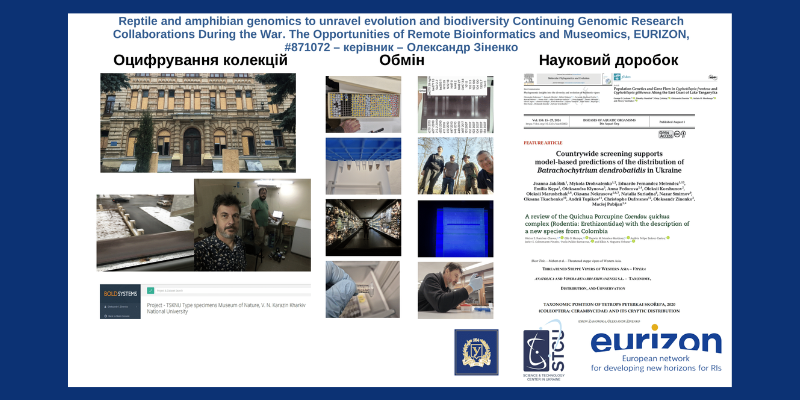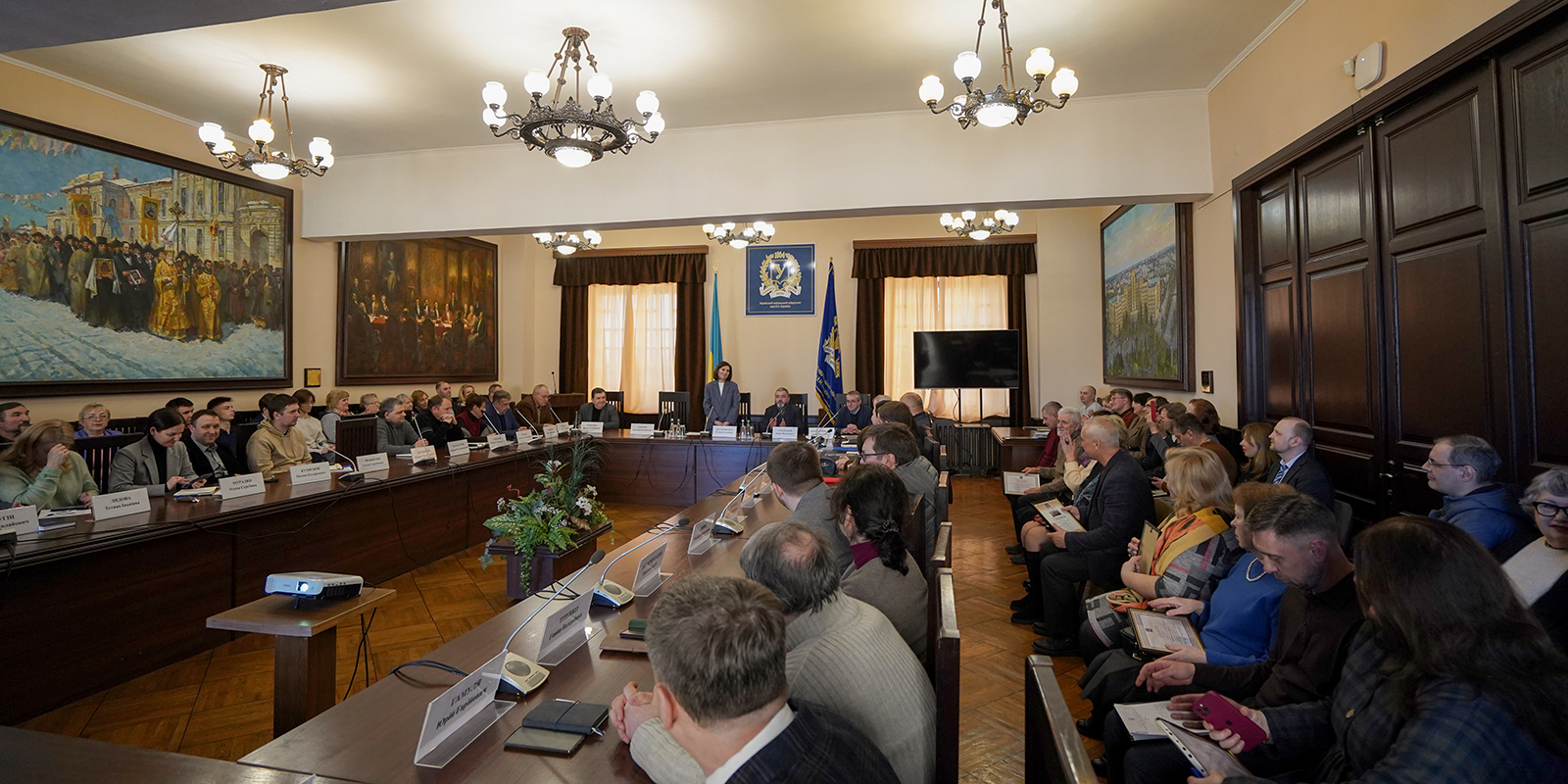Karazin University Scientists Work on the EURIZON Project: "Reptile and Amphibian Genomics to Unravel Evolution and Biodiversity. Continuing Genomic Research Collaborations During the War. The Opportunities of Remote Bioinformatics and Museomics"

Scientists from Karazin University, within the framework of the EURIZON program, are working on the project "Reptile and Amphibian Genomics to Unravel Evolution and Biodiversity. Continuing Genomic Research Collaborations During the War. The Opportunities of Remote Bioinformatics and Museomics."
The project is being implemented at the School of Biology and aims to support collaboration in the field of genomics between Ukrainian researchers and their colleagues from the European Union and Horizon-associated countries.
The project is led by Senior Researcher Oleksandr Zinenko.
Given that laboratory and field studies in Ukraine have been suspended or complicated due to the war, an alternative approach to continuing cooperation is the bioinformatic analysis of data obtained by international partners and analyzed by Ukrainian scientists.
Genomic data from both modern species and historical museum specimens contain vast amounts of information crucial for understanding systematics, evolution, and population history and can assist in future population management planning.
Researchers from Karazin University are engaged in:
-
Phylogenomics of small vipers, continuing collaboration with the Technical University of Braunschweig (Prof. Ulrich Joger);
-
Population genetics of introduced populations of rock lizards and geckos together with Zonguldak University, Turkey (Prof. Oleksii Yanchukov);
-
Taxonomy and evolution of African house snakes (Erlangen–Nuremberg University, Arthur Tiutenko);
-
Genomics of the Alai pit viper — a rare, narrowly endemic venomous snake species (Ghent University, Belgium, Prof. Kevin Mulder);
-
Analysis of inheritance patterns in the unusual hybridogenetic system of green frogs (Institute of Animal Physiology and Genetics in Liběchov, Czech Republic, Dr. Lukas Holeva).
An important focus of the project is also the sequencing of genomes from type specimens stored at the Karazin University Natural History Museum. This work will not only create digital copies of unique and taxonomically important specimens but also stimulate further research on these species.
Several scientific articles have already been published as a result of the project. Support from the EURIZON program has enabled the continuation of international collaboration, leading to outcomes such as the description of a new species, the assessment of fungal disease risks for amphibian populations across Ukraine, and population genetic studies of fish from Lake Tanganyika, among others.







.png)



.jpg)
.png)